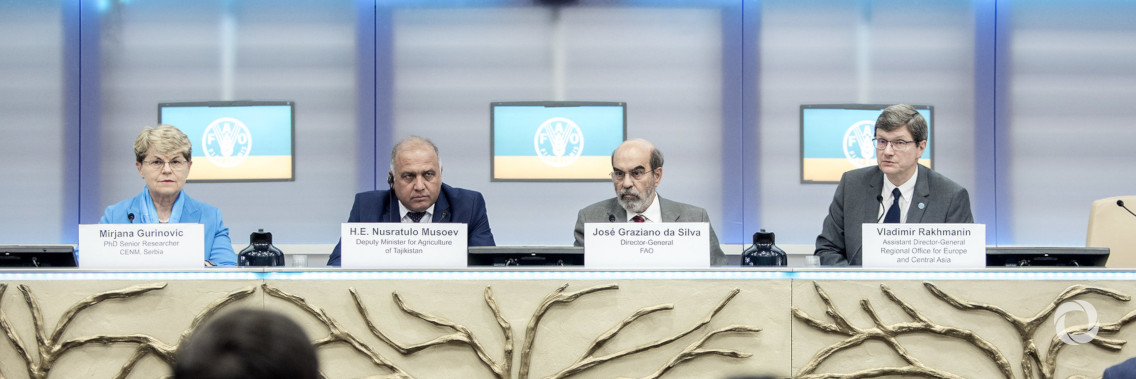Despite the heterogeneity of the region, there is one common challenge related to food security that is present to varying degrees in all countries of Europe and Central Asia – “the triple burden of malnutrition” consisting of undernutrition, overweight and obesity, and micronutrient deficiencies. This pressing issue was discussed by representatives of FAO Member Countries at a special event on the sidelines of the 41st Session of the UN agency’s Conference.
In his opening remarks, the FAO Director-General José Graziano da Silva noted that the region of Europe and Central Asia is better nourished compared to other regions where hunger is “a traditional issue” but it has been recently affected by the impact of climate change, which impedes the efforts to grow food and have better nutrition.
“There is also another issue – the growing level of obesity, reaching epidemic levels in some countries of the region,” he said.
Noting that although structured hunger is the thing of the past in the region, FAO Assistant Director-General and Regional Representative for Europe and Central Asia, Vladimir Rakhmanin, said that “malnutrition is still present in spite of rising prosperity.”
Among important challenges for food security, which need to be addressed in the region, Rakhmanin cited climate change and acute crises spilling over across borders.
He prioritized three areas of work in the region including support to smallholder- and family farmers, improving agrifood trade and market integration, and sustainable natural resource management under changing climate.
“Recently we have started focusing on nutrition issues more, addressing increasingly the negative effects of obesity and overweight including impacts of food systems on non-communicable diseases,” he added.
Rakhmanin, also expressed his gratitude to FAO’s partners in the region for their active support, including the European Union and Turkey – in particular for their role in providing accommodation for Syrian refugees – the Russian Federation and China. He noted that the latter, though outside the region, is “actively engaged in projects in Central Asia, the Caucuses and the Balkans.”
Original source: FAO
Published on 26 June 2019

